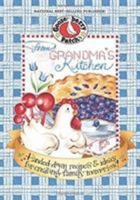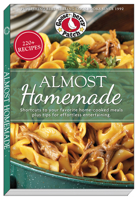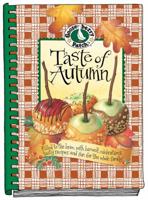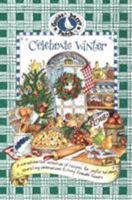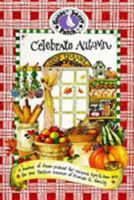A Pinch Of This, A Dash Of That
Select Format
Select Condition 
You Might Also Enjoy
Book Overview
Customer Reviews
Rated 5 starsPinch of This, A Dash of That
I have lots of gooseberry patch cookbooks. This one was brought to add to my collection. I love these cookbooks
0Report
Rated 5 starsA Pinch of This Dash of That
I own several Gooseberry Patch books and this is one of my favorites. From Grandmas Kitchen is my favorite but this one is next in line. If you only buy 1 or 2 of these cookbooks, these are the ones to have.
3Report
Rated 5 starsSuperb
Every recipe is easy to make, turns out great, and doesn't require exotic ingredients. I have made many recipes in this book and they are all excellent. In fact, this is a book I refer to often when planning my monthly menu. I particularly like the ideas and little comments that accompany many of the recipes. They are uplifting and gentle, yet they don't distract from the recipes. Even the little drawings are nice. This is...
1Report
Rated 5 starsBrings back so many memories!
This cookbook has become my very favorite...my Grandma never wrote down any of her recipes for me, but this book includes recipes sent in from people around the country, who got their recipes from their mothers, grandmothers, great-grandmothers and even farther back! It brings so many memories of growing up and coming in from building snowmen with wet toes to a delicious, hot meal. Now I try to create that same feeling for...
2Report















